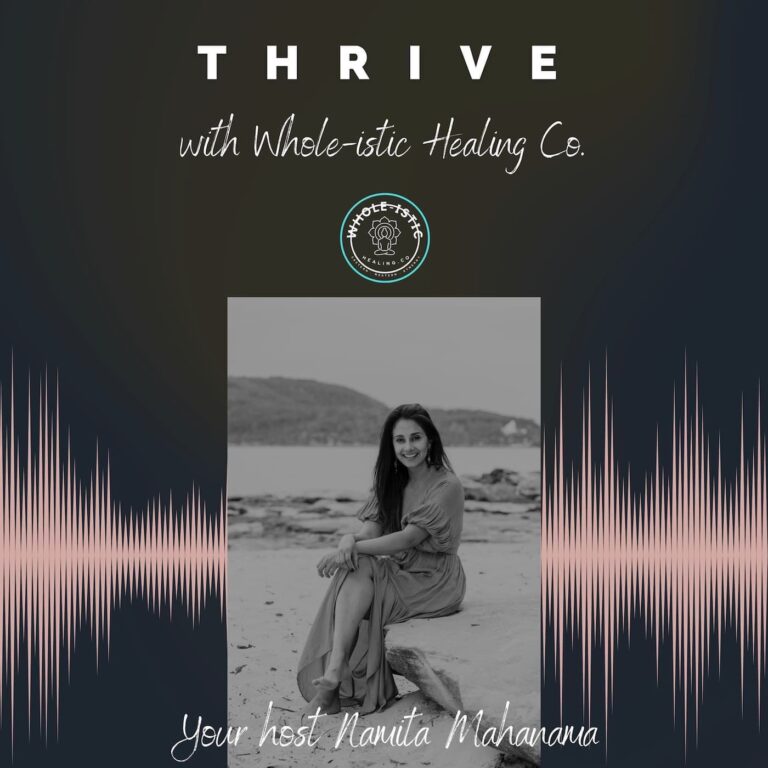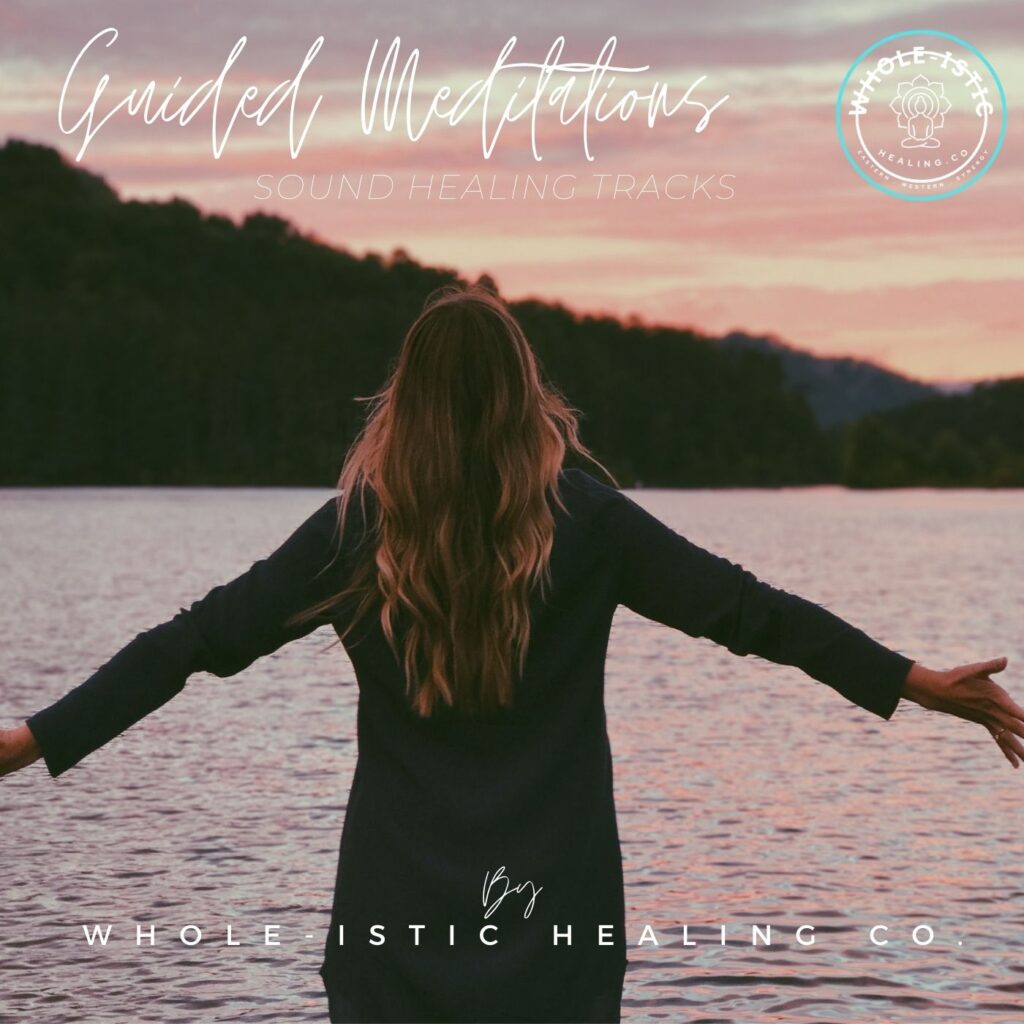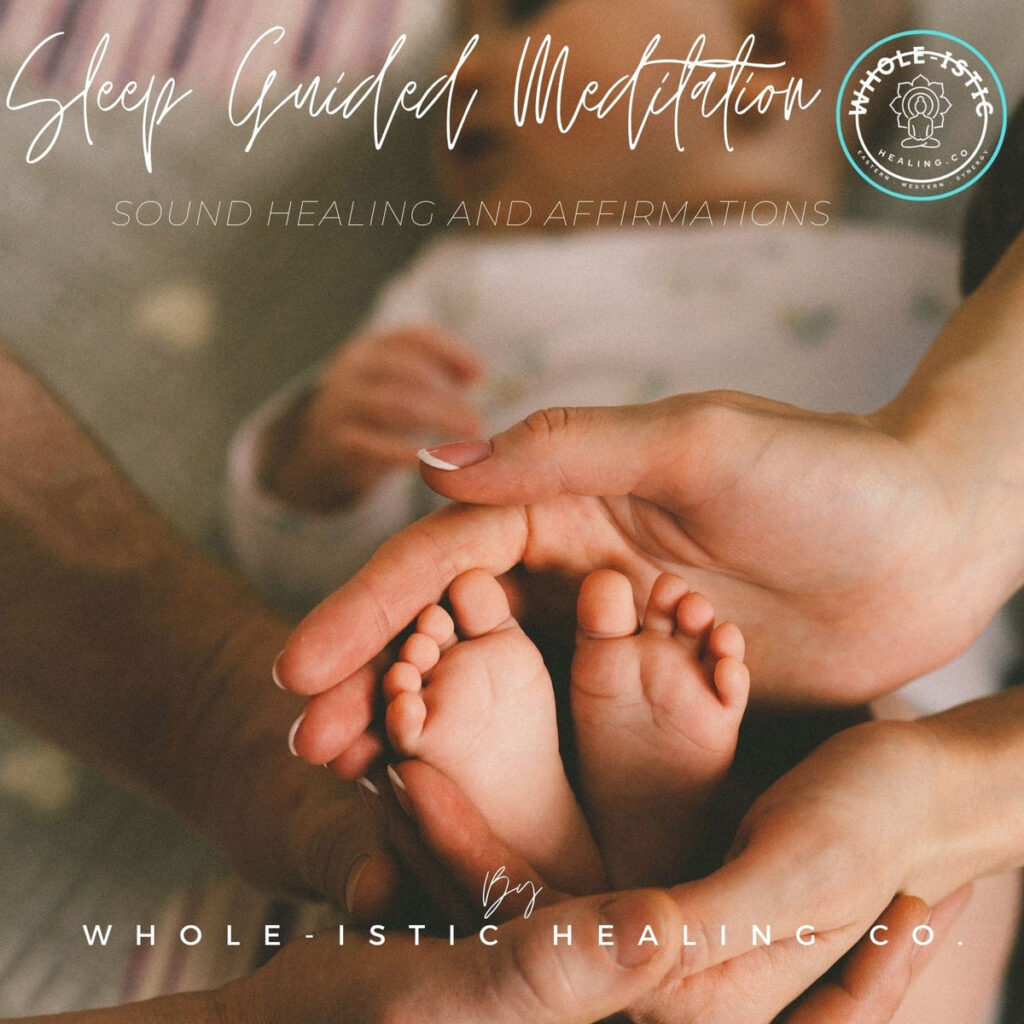THRIVE with Whole-istic Healing Co.

EPISODE 34: MEDICATION FOR POSTNATAL DEPRESSION AND PNDA PART 1 of 3
This is PART 1 of a 3-part series all on MEDICATION in the perinatal period. This episode contains;
(11.34) MY story and my WHY; lots of statistics that will blow your mind
(32.29) WHAT treatment is available for PND and PNDA?
(34.36) WHO should you see to obtain treatment?
(36.44) WHAT medications exist for PND and PNDA and HOW do they work?
(42.56) What factors are considered when choosing a medication?
(46.38) What are some MYTHS around medications?
(54.12) What should you watch out for or consider when beginning a new medication?
(57.35) What are REALISTIC time frames of medications working?
(1.00) How LONG do you need to remain on medication for?
(1.01) What should you consider in regards to the safe use of medicines?
(1.03) What if the medication does not work for you?
(1.07) What if I need medication or your partner needs medication?
(1.10) What can you say if your family or friends ask if you are on medication?\What to say if
(1.13) you feel judgement or stigma from others for taking medication?
(25.48) I am passionate because of the following statistics;
- 1 in 5 women have PNDA
- 1 in 7 women have PND
- 1 in 10 men have PND, all of which equate to 100,000 families each year in Australia; not even factoring the pandemic impact
- 75% of affected women DON’T seek help UNTIL they reach CRISIS point
- 20% have suicidal thoughts or acts of self-harm
- Suicide is one of the LEADING causes of maternal death in the first 12 months postpartum in Australia…with 1 in 4 calls to PANDA having suicidal thoughts
- 50 % of mothers are NOT diagnosed by a HCP (ppd.org) (with 63% of PANDA callers not have informed their health care provider)
- 1 in 5 were diagnosed with depression for the FIRST time in this PERINATAL PERIOD! Which to me means, that 1 in 5 families would have NO idea what is happening to them and WHAT to do!)
- 50% of men who’s partner has PND, will develop depression themselves (postpartumdepression.org)
- The PWC report in 2019 found that PNDA has an $877 million impact annually, with a $5.2 billion lifetime impact
- It was found in this PWC report that 86% of parents with children under 2 with PND were married, but face a lower probability of staying married and this to me would occur due to the immense strain of the condition on relationships
- 80% of women with PND will go on to have a FULL recovery…this is phenomenal!
- What factors are considered when choosing a medication?
Whilst your doctor will look at so much more, as a rough guide they would look into;
- your previous response to medication if you have used it before
- other health conditions, which may impact the safety of medications
- the adverse effects of the medication
- the potential for drug interactions
- the toxicity in overdose, and therefore the safety profile of the medicine and your unique presentation
You can see why it’s not a ONE SIZE fits all approach, and because a ‘friend’ had success with one class of medicine does not mean that it is right for you.
It is also important to know, that using one medicine successfully in the past does not guarantee effectiveness the second time; as was my case. Not to be disheartened, but the extent of biochemical change can differ and potentially be more heightened with subsequent episodes or relapses. It may require higher doses, or additional agents or completely different class of medication to have the same effect…so to keep this in mind also.
According to the AMH, approximately HALF of adults (not postnatal cohort, general cohort), with moderate-to-severe major depression, respond to antidepressant treatment.
- Most antidepressants are approximately equal in efficacy; however individual responses vary significantly
- Can be a matter of TRIAL and ERROR to find your right medicine
- What are some MYTHS around medications?
+ That it is addictive
+ Once you start medication you are on it for life
+ It will make you a zombie with no heart or emotions/numb
+ It can cause weight gain
+ Loss of libido
+ People that live in a ‘low-tox’ manner, it feels like they are taking chemicals or foreign substances
+Fear of being labelled as being on medication, the ‘fear’ of losing their registration if a health professional or being found out
+ That it is a ‘quick fix’; it may not be
+ That it is the ‘easy way out’
+ Once healed that you won’t ever feel yourself without medication
- What should you watch out for or consider when beginning a new medication?
It is important before starting to know;
- WHAT it is? What other names does it go by? (so you don’t double up)
- HOW does it work?
- What are the side effects?
A NUMBER OF MEDICATIONS HAVE AN INCREASED SUICIDE RISK, SO THIS IS CRUCIAL TO KNOW UPON STARTING FOR YOU AND YOUR FAMILY/LOVED ONES. I go into this more in part 2, but knowing this allows your loved ones to be EXTRA vigilant; it can save lives knowing this…and having the health literacy around it (what to watch for, what to do, where to go)
- How long until it starts to work? How long to remain on the medication?
- What can it interact with; medicines and food?
- Can you drink alcohol with it?
- Any other questions you have
- What are REALISTIC time frames of medications working?
Important to know that medications are not always a QUICK FIX; it can take time to work;
+ Begin with a low dose, and increase slowly if necessary over 2-4 weeks as tolerated
+ Some improvements within 1-3 weeks
+ Most improvement within 4-6 weeks
+ Full effects may take 6-8 weeks
Knowing this, provides REALISTIC expectations, which are SO important!
If after a time period, if your doctor deems that the medication is not working they may decide to;
- Increase the dosage
- Add another agent
- Wean off this medication slowly, and introduce a new medication altogether
It is VITAL however, to never decide yourself that it isn’t working and stop suddenly. This can cause severe side effects and it is needs to be ONLY done with close monitoring from your doctor based on WHAT they decide is best for you.
If it is not working, then open communication about WHAT your symptoms are and how you are feeling, will allow them to decide WHAT to do next. COLLABORATION is needed
- How LONG do you need to remain on medication for?
The myth of needing to remain on medication for life, is a myth!
Generally speaking, once your symptoms have resolved on medication, you may need to remain on it for 4-12 months, depending on your physician. The time increases based on the number of relapses.
Again, NEVER cease medication without advice from your doctor…no matter how great you feel!
- What should you consider in regards to the safe use of medicines?
+ Following from above, it is important to ALWAYS continue your medicines and never START/STOP at a whim, or because you feel better. You feel better because the medicines are recalibrating your biochemistry!
+ On this note, always ensure that you get your supplies in advance, so there is no risk of running out. Especially with various out-of-stock issues after the pandemic, it is important to ensure you have enough medicine to continue with.
In a situation where it is out-of-stock, ring around various pharmacies to locate stock and then have your script filled.
+ In terms of storage, especially with small children, it is VITAL to keep the medicines stored in a cool place ABOVE the REACH of CHILDREN and MINDFULLY focus whilst taking the medicine. It can be easily dropped & think crawling babies (ah!)…so concentrate so you know you have taken it and there is no risk of forgetting that you took it.
(Tick your calendar if you like that, or set a reminder on your phone that action immediately)
+ Always ensure when travelling that you take your medicines with you! I always take mine on hand-luggage too, so that there is no chance your bag will be lost and your pills too!
+ Do not keep them in a hot car; below 25 degrees Celsius and out of direct sunlight
- What if the medication does not work for you?
+ Chat with your doctor FIRST
+ NEVER increase the dosage or cease medication on your own
+ Know that there are SO many options to try! Never feel despondent that nothing will work; you WILL find your KEY!
+ Be patient and hold onto faith that the right medication will be found
+ Make sure you listen to part 3 where I go through ‘whole-istic’ strategies to utilize whilst using Western treatments, to adjunct or compliment your treatment
+ Open communication with your doctor is key
+ Chat with your partner/loved one, and ask them how you have been tracking. You may not see any improvements, but they may! Open communication is key
+ Check in with yourself to try jot down specifically what/why you feel it is not working (sleep, appetite, mood, side effects etc.). This will help your health team decide WHAT is best for you
- What if I need medication or your partner needs medication?
Firstly, be KIND to yourself or your partner.
Know, there is NOTHING wrong with you for needing medication.
You are NOT weak.
You are NOT taking the easy way out.
You are bold and taking action into your recovery.
Know that I am proud of you for trusting in your health professional, and that this piece may be the one that will save your life.
I would dedicate time to speak with your doctor about ANY and ALL quessitons that you have; as well as your pharmacist to go through ALL the information that you need!
- What can you say if your family or friends ask if you are on medication?
We all have the right to privacy and confidentiality; so we do not need to disclose any information to anyone that we don’t want to. Simple.
The disclaimer to this though for me personally is, is telling your loved ones that live with you if you begin medication so that they can monitor for any increased or changes to suicidal thoughts.
However, other than that, it is no one’s business if you don’t want it to be!
Examples of things to say if you don’t want to answer;
– ‘That is between me and my health care team’
– ‘We’re exploring our way through the best treatments, and I am happy with the care that I am receiving’
– ‘I am under excellent care with my health team, thank you so much for checking in’
If you do want to share with them that you are, then also, that is your choice and right to share what you want to!
What to say if you feel judgement or stigma from others for taking medication?
I would tell them to F off! It is NO body else’s right to tell you what to do or to impose their feelings onto you and your health.
I would simply stand tall in your informed decision that you have made, with the conviction that you are taking action to walk towards your recovery and put it on them;
– ‘I am so sorry you feel that way…’
– ‘You are entitled to your opinion, but this is my body and my health, and I have the right to choose’
At the end of the day, no one else’s opinions matter except for those that are helping you through your recovery, the one’s holding your hand when you fall. The one’s who lay awake with you, or help carry the load when you cannot. Those are the only people that matter, not anyone else.
And if it is the same people who are judging you or imposing their man-made judgement around medication, then I would simply say that you are doing whatever it takes to recover from this condition, I am worthy and deserving to be back into my light…my children deserve that too.’
Simple.
80% of women fully recover from this, and I believe that with greater health literacy of what it is, what treatments are available and having the tribal support, that it can be 100%.
Do not let anyone’s ignorance keep you in the dark for any longer than necessary.
You are a being of light, and you are so deserving to walk back into your light.
Your life will feel brighter, more fulfilling and connected that before…I promise you.
You just have to keep on going and showing up.
xx Namita




